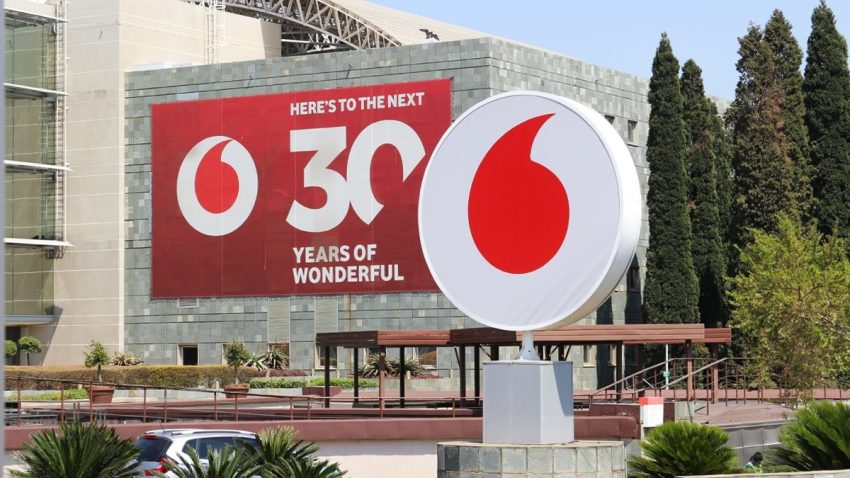Vodacom is trying several strategies to unlock new areas of growth outside of pure mobile services, while leveraging its cellular network assets, Sanlam Investments portfolio manager Roy Mutooni says.
Speaking to BusinessDay TV, Mutooni highlighted that Vodacom’s beyond mobile divisions now contribute 20% to 22% of earnings.
In its report for the year ended 31 March 2025, Vodacom said a key component of this growth was financial services, which grew 7.6%, adding 9 million customers.
Vodacom also reported that financial services revenue grew from R6 billion in its 2020 financial year to R14 billion in 2025.
“That’s significant progress. It shows that they’re really trying to see how they can diversify their business while sweating the asset a whole lot more — the asset being the network,” said Mutooni.
“They’ve gone into e-commerce, they’ve done a lot of things on the enterprise side, and the app strategy still continues.”
The app strategy refers to Vodacom’s different super apps, which it offers in markets across Africa, namely VodaPay, Vodafone Cash, and M-Pesa.
Whereas M-Pesa is deeply entrenched in Kenya, Vodacom offers Vodafone Pay in Egypt and Ghana, and VodaPay in South Africa.
Vodacom said its one-app strategy was transforming its customer engagement by consolidating telecommunications, financial and digital services into super-apps.
It also said user adoption and usage of VodaPay accelerated through the year as it integrated its standalone telecommunications app, MyVodacom, into VodaPay.
“These platforms drive and deepen digital and financial inclusion while unlocking e-commerce opportunities for both consumers and merchants,” Vodacom said.
“Our ability to facilitate mobile money transactions to the value of $1.2 billion (R21.5 billion) a day further exemplifies our impact and FinTech leadership on the continent.”
Vodacom said it was a strong year for its financial services segment, with revenue increasing by 7.6% year-on-year to R14 billion.
“Advanced financial services, such as savings, loans and merchant offerings, contributed more than 40% of M-Pesa revenue in the year, consistent with our strategy to expand the ecosystem,” it said.
Vodacom said its Safaricom associate in Kenya, where M-Pesa dominates, generated financial services revenue of R22.6 billion in FY2025.
“Alongside the super-app rollout, our active merchant base continued to scale meaningfully in South Africa and across our international business,” it reported.
“Our merchant base in South Africa extended to over 11,000, while across our international business, we grew M-Pesa merchants 34.9% to 533,000.”
Vodacom also sees an opportunity for merchant services in Egypt and expects to expand new merchant capabilities and other financial services by leveraging the group’s product roadmap.
“Our mobile money platforms, including Safaricom, processed $450.8 billion (R8.1 trillion) of transaction value in the financial year, representing clear leadership in the African FinTech space,” said Vodacom.
“Annual mobile money transactions reached 42.6 billion, up an impressive 26.4%.”
Over 32 million new fintech customers in five years

Vodacom said its financial services ecosystem now connects 87.7 million customers across its group of companies, with ambitions to grow to 120 million fintech customers by 2030.
At the same time, it wants to grow its overall subscriber base from 211 customers to 260 million in the next five years.
“Our ecosystem of products and services is powered by Big Data, which enhances our capabilities across customer value management, loyalty and financial services,” said Vodacom.
“This helps us diversify revenue streams and drive inclusion. By analysing over 13,000 customer attributes, we develop data-driven solutions that improve price competitiveness and personalisation.”
Vodacom said its FinTech platforms empower consumers and merchants with products and services spanning e-commerce, payments, savings, investments, lending and insurance.
“As we innovate beyond mobile, we are committed to driving inclusion. Smartphone penetration is a strategic priority, unlocking opportunities for digital services and financial inclusion,” it stated.
“As we deepen financial inclusion across our markets, we expect to unlock new economic growth opportunities.”
Vodacom said wealth management is one of the more interesting opportunities in this regard, as evidenced by the recent launches of wealth products in Tanzania and Kenya.
“These are charting a new growth vector for our financial services business,” Vodacom said.
Beyond mobile, beyond South Africa

Regarding the contribution of Vodacom’s businesses outside South Africa to its bottom line, Mutooni said Kenya and Egypt probably represent 40% of Vodacom’s earnings, give or take.
“That’s quite significant,” he said. “Tanzania has also done well on the back of the regulator becoming more friendly and investment savvy, and more willing to let the networks go out there and sell their wares.”
Mutooni said Tanzania has shown massive growth over the past two years, as has Safaricom in Kenya, while Egypt also benefited from a friendly regulator.
“When there was a big currency devaluation, the regulator allowed them to raise prices,” Mutooni explained.
“They raised prices three times to match the devaluation, and that’s underpinned the earnings.”
Since South Africa’s growth has been relatively slow, Mutooni said that Vodacom’s international segment has been adding value.
“You’ll see that both Kenya and Egypt will pay dividends to the holding company here and support the dividend and free cash flow generation of the group,” he said.
“Generally, outside of Mozambique, those African operations have been adding value.”
Vodacom Group Revenue

Vodacom net income

Vodacom EBITDA


